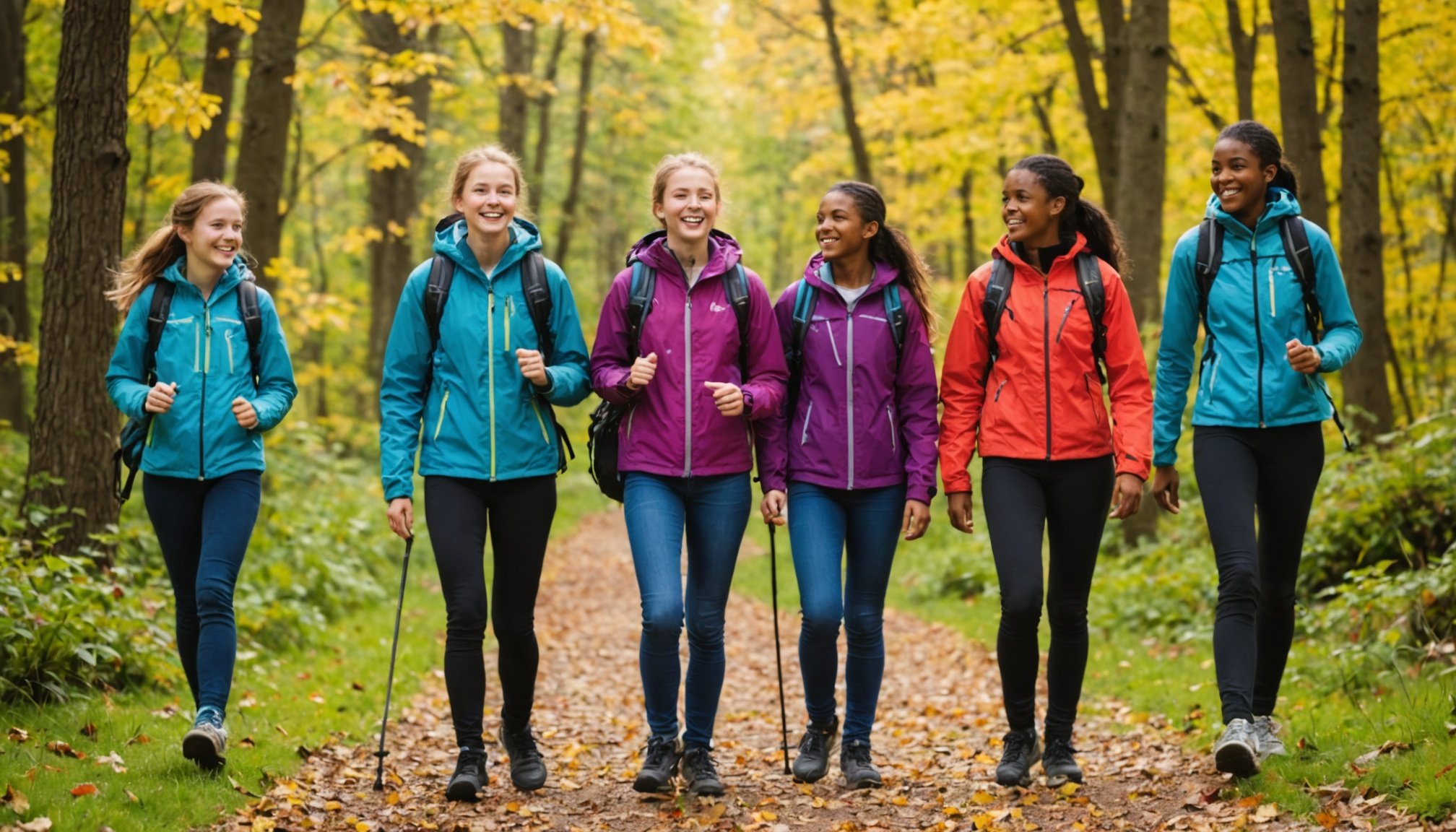Understanding Teen Mental Health
Teen mental health is a vital aspect of adolescent development, influencing how young people interact with the world. Adolescent psychology sheds light on common challenges such as anxiety, depression, and stress management. Addressing these issues early is crucial because this period shapes a teenager’s emotional and psychological resilience.
During adolescence, individuals often face significant social and academic pressures, contributing to mental health struggles. These can manifest as mood swings, withdrawal from social activities, and declining academic performance. Identifying these signs can lead to prompt intervention and support.
Topic to read : Exploring the Impact of Bilingualism on Cognitive Resilience in Older Adults
Statistics indicate that approximately one in five teens experience a severe mental health condition at some point. This highlights the need for increased awareness and resources dedicated to mental well-being. By understanding these figures, communities, caregivers, and educators can better support teenagers in navigating their emotional landscapes.
Promoting positive mental health habits such as regular physical activity, sufficient sleep, and open communication with parents or guardians fosters resilience. Furthermore, establishing accessible mental health services tailored for teens can provide essential support. Encouraging teens to engage in these practices helps equip them with lifelong skills to manage their mental health effectively.
Also to read : Exploring the Impact of Consistent Yoga Practice on Adult Heart Rate Variability: What You Need to Know
Benefits of Outdoor Activities on Mental Health
Engaging in outdoor activities offers a myriad of benefits encompassing both physiological and psychological dimensions. Research consistently reveals that time spent in nature is linked to reduced levels of anxiety and depression. The concept of nature therapy—the therapeutic effect of being outdoors—has gained considerable recognition, with studies illustrating improvements in mood and emotional resilience.
Physiological and Psychological Benefits
Outdoor activities, by promoting physical movement, contribute significantly to mental well-being. Physical activity releases endorphins, chemicals in the brain that act as natural mood lifters, thereby supporting mental health improvement. Furthermore, sunlight exposure helps regulate the circadian rhythm, enhancing sleep quality, which is crucial for maintaining psychological health.
Evidence from Research
Studies highlight that individuals who regularly engage in outdoor experiences report lower stress levels and a boost in overall happiness. Immersion in nature offers a refuge from daily stressors, thus decreasing the prevalence of anxiety and depression symptoms. Nature therapy serves as a simple, yet effective, intervention for those seeking relief from mental health challenges.
Importance of Physical Activity
It’s essential to integrate physical activity into daily routines for optimal mental health improvement. Beyond the physical benefits, exercise enhances cognitive function, reduces stress, and fosters emotional stability, making outdoor activities a valuable component of a holistic approach to well-being.
Recommended Outdoor Activities for Teens
Exploring the great outdoors offers a perfect opportunity for teens to engage in recreational activities and enjoy the many benefits of physical exercise.
Hiking and Nature Walks
Hiking and nature walks can be both exhilarating and calming, providing teens with a chance to connect with nature while exercising. Suitable for various skill levels, these activities offer flexibility in choosing trails that match the participant’s experience and physical ability. Beginners might start with shorter, less demanding trails, while more adventurous teens could tackle longer hikes with varying terrains. Encouraging teens to include nature walks in their weekly routine can enhance their appreciation for the environment and improve their physical health.
Team Sports
Team sports such as soccer, basketball, or volleyball are excellent outdoor activities for teens, offering not only physical benefits but also fostering team spirit and collaboration. Most teens aged 13 and up can participate in beginner-level teams, where they can develop skills and fitness. Integrating team sports into a regular schedule helps establish discipline and offers social interaction, enhancing their sense of community.
Gardening
Gardening is a creative and therapeutic activity that enables teens to connect with the environment. Even without a green thumb, novices can start with simple projects, like growing herbs or small vegetables, which suit younger teens. Gardening encourages responsibility and patience while also providing physical exercise. Integrating gardening into weekly activities not only develops horticultural skills but also promotes environmental consciousness among teens.
Expert Insights on Outdoor Activities and Mental Health
Accessing insights from mental health professionals can provide a clearer understanding of how outdoor activities benefit our well-being. Experts such as psychologists often advocate for outdoor exercises, citing substantial research findings that highlight positive impacts on mental health. For instance, Dr. Sarah Johnson, a leading psychologist, notes that regular exposure to nature can significantly reduce symptoms of anxiety and depression.
Several studies bolster these assertions. A notable study published in the Journal of Environmental Psychology found that individuals who engaged in outdoor activities reported increased levels of happiness and a decrease in stress. The research underscores the importance of integrating nature into daily routines to foster mental health improvements.
Despite these benefits, mental health professionals caution against overlooking certain considerations. For example, some individuals may have physical limitations that restrict their ability to participate in outdoor activities. Additionally, weather conditions and geographic location can pose challenges to regular engagement with nature. Thus, while outdoor activities are largely beneficial, tailoring them to individual needs is crucial.
Balancing expert opinions, it’s evident that thoughtful integration of outdoor time can lead to enhanced mental well-being. However, personalized approaches remain fundamental to ensuring these activities are both accessible and effective for everyone.
Case Studies: Successful Implementations
Exploring the effectiveness and impact of programs focused on outdoor activities for mental health is crucial. Numerous case studies showcase their benefits, particularly for teenagers. One compelling story involves a program that connected city teens with outdoor experiences in nature reserves. Participants reported significant improvements in mood and stress levels after engaging in activities like hiking and team-building exercises.
Program Effectiveness Analysis
Such programs emphasize structured activities, often incorporating mindfulness practices and peer support. For instance, a two-week summer camp program aimed at reducing anxiety in teens encouraged daily outdoor meditation sessions and group discussions. The outcomes indicated a reduction in anxiety levels, with participants expressing a sense of calm and connectedness post-camp.
Personal Impact Stories
Individuals share transformative experiences. A teenager from a rural area with high anxiety levels found solace in a wilderness therapy program. Through guided nature exploration, they gained confidence and communication skills. Personal stories like these highlight the vital role of outdoor programs in supporting mental health, offering evidence of their long-term benefits.
These real-life implementations confirm that structured, nature-based interventions not only address mental health issues but also foster resilience and personal growth in young people.
Tips for Parents and Educators
Engaging teens in outdoor activities can be a challenge, but with the right parenting tips and educator strategies, you can make the outdoors inviting and beneficial. Start by setting an example—show enthusiasm for outdoor activities, as your passion can be contagious. Encourage youth engagement through simple and relatable activities, such as organizing a neighborhood hike or a weekend nature scavenger hunt.
Parents and educators should explore local resources to facilitate outdoor activities. Community parks often host free events or workshops that promote environmental awareness. Libraries and community centers might offer programs tailored for teens, integrating outdoor components. These resources can provide structured opportunities for young individuals to explore their surroundings and develop an appreciation for nature.
Communities play a crucial role in supporting youth mental health through outdoor initiatives. They can form networks that offer consistent outdoor activities, which not only foster emotional wellbeing but also strengthen social connections. Establishing group events, like weekend soccer games or gardening clubs, encourages inclusive participation. Such initiatives harness the power of community, emphasizing collective responsibility for nurturing a supportive environment for teenagers to thrive in the great outdoors.











